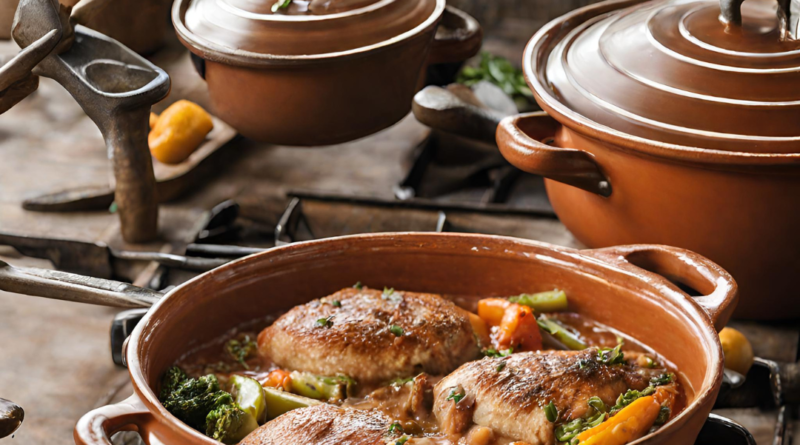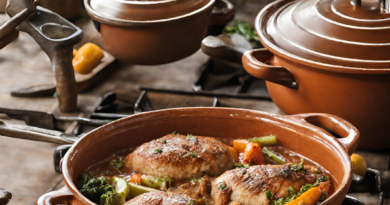How do you prevent cracking in clay cookware?
Preventing cracking in clay cookware requires proper care and handling, as clay pots can be more susceptible to cracking than other materials like metal or glass. Here are some tips to help you prevent cracking in your clay cookware:
1. Seasoning:
Before using a new clay pot, season it by soaking it in water for several hours or overnight. This helps the clay absorb moisture and reduces the risk of cracking during cooking. Seasoning is especially important for unglazed clay pots.
2. Avoid Sudden Temperature Changes:
Clay pots are sensitive to rapid temperature changes. Avoid placing a cold clay pot directly onto a hot stove or into a preheated oven. Gradually increase the temperature to avoid thermal shock. Similarly, don’t immerse a hot clay pot in cold water as it can cause cracking.
3. Use a Heat Diffuser:
To distribute heat more evenly and reduce the risk of cracking, consider using a heat diffuser or a trivet when cooking with clay pots on a stovetop.
4. Soak Before Baking:
If you’re using a clay pot for baking bread or other items in the oven, soak it in water for about 15-30 minutes before placing it in a hot oven. This can help prevent the pot from drying out too quickly and cracking.
5. Preheat Gradually:
When using clay cookware in the oven, preheat it slowly along with the oven. Avoid placing a cold clay pot directly into a hot oven, as this can lead to thermal shock and cracking.
6. Use Appropriate Utensils:
Avoid using metal utensils, which can scratch or chip the surface of glazed clay pots. Opt for wooden or silicone utensils to protect the pot’s integrity.
7. Avoid High Heat:
Clay pots are best suited for low to medium heat cooking. Avoid subjecting them to extremely high temperatures, such as broiling or using them on a grill, as this can cause thermal stress and cracking.
8. Proper Cleaning:
Allow the clay pot to cool down before cleaning it. Clean it gently with warm water and a soft brush or sponge. Avoid using harsh detergents or abrasive cleaning materials, as these can damage the clay’s surface.
9. Store Properly:
Store your clay cookware in a cool, dry place. Avoid stacking heavy items on top of clay pots, as this can lead to pressure-induced cracking.
10. Regular Inspection:
Periodically inspect your clay cookware for any signs of wear, cracks, or damage. If you notice any issues, it’s best to discontinue use to prevent further damage.
11. Avoid High Flames:
When using clay pots on a stovetop, keep the flames low to prevent overheating and cracking. Use a diffuser if needed to distribute heat evenly.
By following these tips and handling your clay cookware with care, you can extend its lifespan and reduce the risk of cracking, allowing you to enjoy the benefits of cooking with clay for many meals to come.



